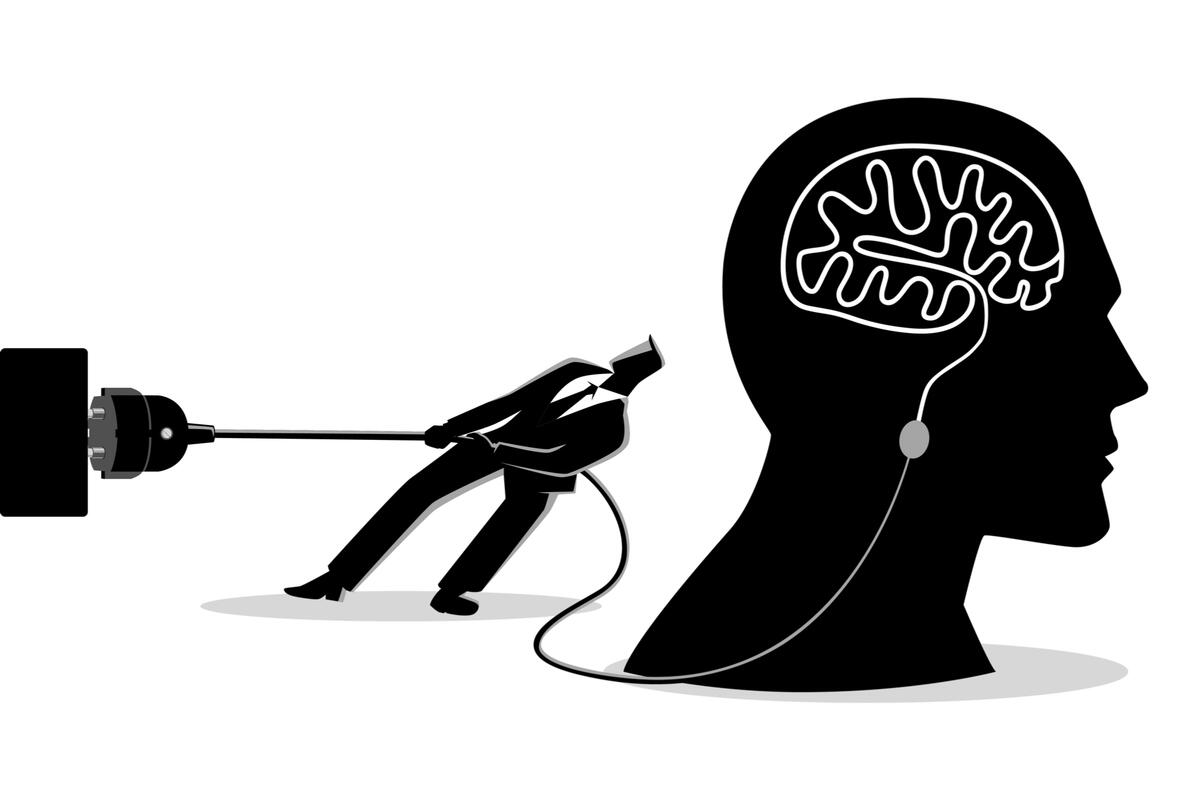Ping! Swoosh! Chirp! In an “always on” world — where we’re constantly bombarded with emails, social media notifications, and other distractions — do you sometimes want to go where nobody knows your name?
There may not be an app for that but thousands of people around the country have found something close: Sundown on March 1 kicks off the National Day of Unplugging, a 24-hour global respite from technology. Now in its 10th year, the project encourages folks to relax, reflect, get outdoors, and connect with loved ones.
Inspired by Jewish tradition, the event is a digital-age take on the weekly ritual of Shabbat, or day of rest. But given the toll that living in a state of permanent urgency can have on our physical, mental, and social health, UNLV sociologist Simon Gottschalk, author of “The Terminal Self: Everyday Life in Hypermodern Times” and the essay "In Praise of Doing Nothing," says regular digital detoxes are beneficial for everyone.
Here are five areas where Gottschalk says taking breaks to unplug and unwind can improve our lives:
Health
Whether through passive observation or active engagement, we’re constantly faced with a barrage of negativity on email and social media. Being on the receiving end of constant anger, stress, or other antagonism triggers toxic neurochemical reactions in the body, Gottschalk says.
What’s more, it’s estimated that the average American worker spends 23 percent of the day just managing email. The stress surrounding expectations to work around the clock can wear on you. For example, research finds two to three times more self-reported health problems, from anxiety to sleeping issues, among workers who frequently work in high-speed environments compared with those who do not.
Unplugging can help. Danish researchers found that students who disconnected from Facebook for just one week reported notable increases in life satisfaction and positive emotions. In another experiment, neuroscientists who went on a nature trip reported enhanced cognitive performance.
Creativity
Much research – and many spiritual and philosophical systems – suggest that detaching from daily concerns and spending time in simple reflection and contemplation are essential to health, sanity and personal growth. In fact, psychological research suggests that doing nothing is essential for creativity and innovation, and a person’s seeming inactivity might actually cultivate new insights, inventions or melodies.
As legends go, Isaac Newton grasped the law of gravity sitting under an apple tree. Archimedes discovered the law of buoyancy relaxing in his bathtub, while Albert Einstein was well-known for staring for hours into space in his office.
Relationships
One of the conveniences of terminals is the ability to tap a screen and demand answers to almost anything — math equations, movie viewing options, the meaning of life — at a moment’s notice. However, Gottschalk warns that the instant gratification associated with eliciting a machine’s response with every keystroke — sometimes giving us an answer before we even finish typing the question — can lead us to unrealistically expect people to attend to our desires just as quickly in real life.
“It corrupts our interaction with people. We begin to feel entitled to have every one of our impulses gratified immediately,” he said. “The fact that technology is available on demand doesn’t mean that people are. No one can live like that.”
Empathy
Face-to-face interaction incorporates a number of non-verbal cues such as facial expressions, gestures, and eye contact, but online you’re reduced to one medium — language. “That really complicates communication,” says Gottschalk.
Take the historic medium of letter-writing, for example. Putting pen to paper usually involves taking time to reflect, making thoughts clear, and practicing “role playing” (examining thoughts from the reader’s point of view) with the expectation that a letter may be kept in a box and treasured for years to come. “Email communication degrades all that,” Gottschalk said.
Loneliness
Online shopping and texting mean never having to interact with other humans face to face. And even group activities, such as attending a concert but watching it through a tiny phone screen while recording, can be marred by technology.
“Our capacity to broadcast every passing thought, desire, or emotion to hundreds of scattered individuals is unique in human history and human psychology," Gottschalk said, “but research shows that at no point in our history have so many people reported being lonely.”
One of the issues, Gottschalk says, is that the online environment allows for invisibility and anonymity, which lends itself to antisocial behavior. Another is that while the terminal enables us to communicate to whomever, whenever, from wherever, the communication it enables is so limited and limiting. “That makes it very difficult to develop an authentic relationship with somebody else online,” he said.



